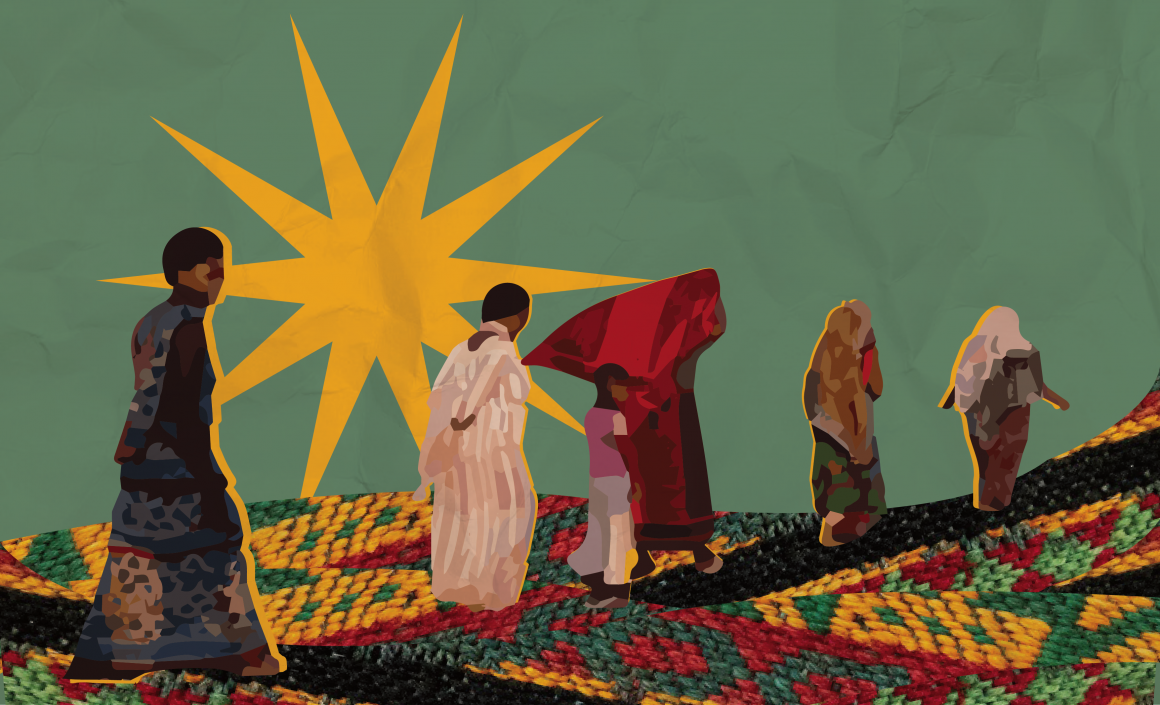
GCC unites U of C students globally to address real-world challenges
By Vama Saini, March 26 2024—
The Global Community Challenge (GCC) program at the University of Calgary has become a beacon for change, bringing together students from around the world to address real-world challenges faced by local organizations. In 2023, the GCC took place from October to December and had 72 students from 12 universities to solve nine challenges set by community organizations.
In an interview with the Gauntlet, participants Victoria Jarvie and Paul Vasquez shared their experiences and insights into this transformative program.
Jarvie is a mature social work student juggling family responsibilities and pursuing a Law and Society degree. She found the GCC program to be a gateway to extracurricular opportunities.
“Being an adult with kids, it’s really difficult for me to find options in areas […] that work within my schedule,” she shared.
Vasquez is a second-year communications and media student who joined the GCC program to serve communities and network with people from diverse backgrounds.
“Part of the reason I joined was because of networking. I was able to network with other students and other professionals as well. Because I’m an international student and wanting that Canadian international experience, this provided a really good stepping stone in terms of establishing myself, in terms of creating my portfolio,” said Vasquez.
Jarvie highlighted the flexible structure of the program, where teams had to create their own leadership hierarchy, fostering a sense of ownership and innovation.
“Most of the projects were looking for those ground-breaking ideas. They were kind of like the impossible answers. How do you make these changes that the people in these companies have been working toward for years?” said Jarvie.
Partnering with the Salvation Army family service, Vasquez tackled the challenge of changing perceptions around the Forest Lawn area, addressing crime and violence-related issues.
“The problem we were trying to find a solution with was Salvation Army serving the Forrest Lawn area. The crime rate is high, and violence is high, so there is this perception problem. In my team, I was the one in charge of that,” said Vasquez. “The solution was that it’s not just a perception problem, but [that] the change should come inside out.”
The program broadened Jarvie’s approach to social work, transitioning her from a front-line worker mindset to a higher-level, critical-thinking approach.
Jarvie’s team devised a two-sided solution, addressing mental health and providing virtual skills training for women. It was these innovative ideas that led the Making Changes Association team to second place in the challenge.
“We had come up with a technology that was about working within a technology program for women in training, and another part of it was doing it through [virtual reality] so that women could be at home with kids and learning virtual skills online while kids are sleeping,” said Jarvie.
Jarvie emphasized the importance of diverse teams, noting the profound impact of human connections formed during the challenge.
“It broadens your entire life in aspects of mental health, physical health, growing emotionally, growing impactfully and having a higher goal for bigger people will really bring anyone from any walk of life together in a way of helping that I think is missing so much from our world right now,” said Jarvie.
In charge of addressing the perception problem in the Forest Lawn area for the Salvation Army, Vasquez highlighted the program’s impact on his communication and media strategies. The multidisciplinary and cross-cultural nature of the team provided insights into navigating time zones and cultural barriers.
“There’s this realization that we have different ways of looking at the problem, but we have the same goal, which is to solve the problem. During my experiences, I’ve gained insight on how to work around that and how to create a solution that is representative of the whole group,” said Vasquez.
Vasquez’s team developed a framework focusing on networking opportunities, community engagement and media strategies to combat stigma.
“In the first part of the program, we would provide networking opportunities for the youth, for the newcomers, and basically connect them and provide [them] with the resources where they could connect to especially employment because [unemployment] is a challenge in Forest Lawn,” said Vasquez.
Both Jarvie and Vasquez emphasized the significance of embracing diversity and being open to varied perspectives within teams. They highlighted the challenges of time zones and diverse age demographics but recognized these hurdles as opportunities for personal growth and learning as students.
“I think it has really great possibilities and a lot of great ways to initiate support systems,” said Jarvie.
“One of my advice is to really just be yourself and express what you feel and your insights because that is what brings value to the table. They want your voice. They want your insights,” said Vasquez.
Learn more about the GCC program here.
